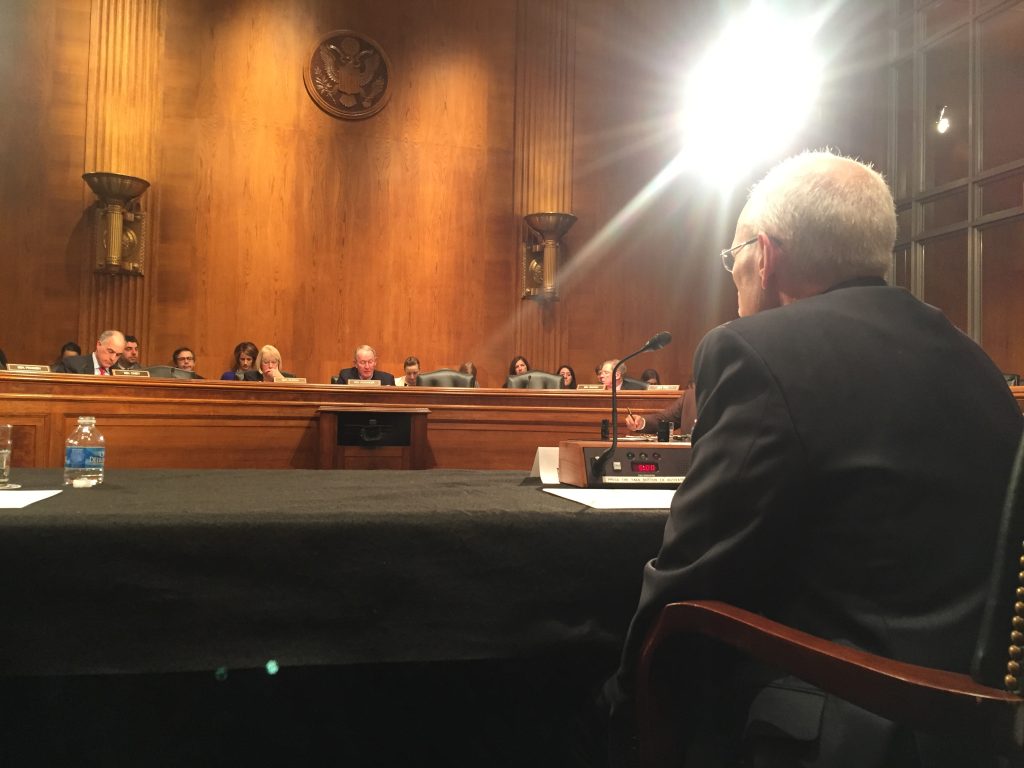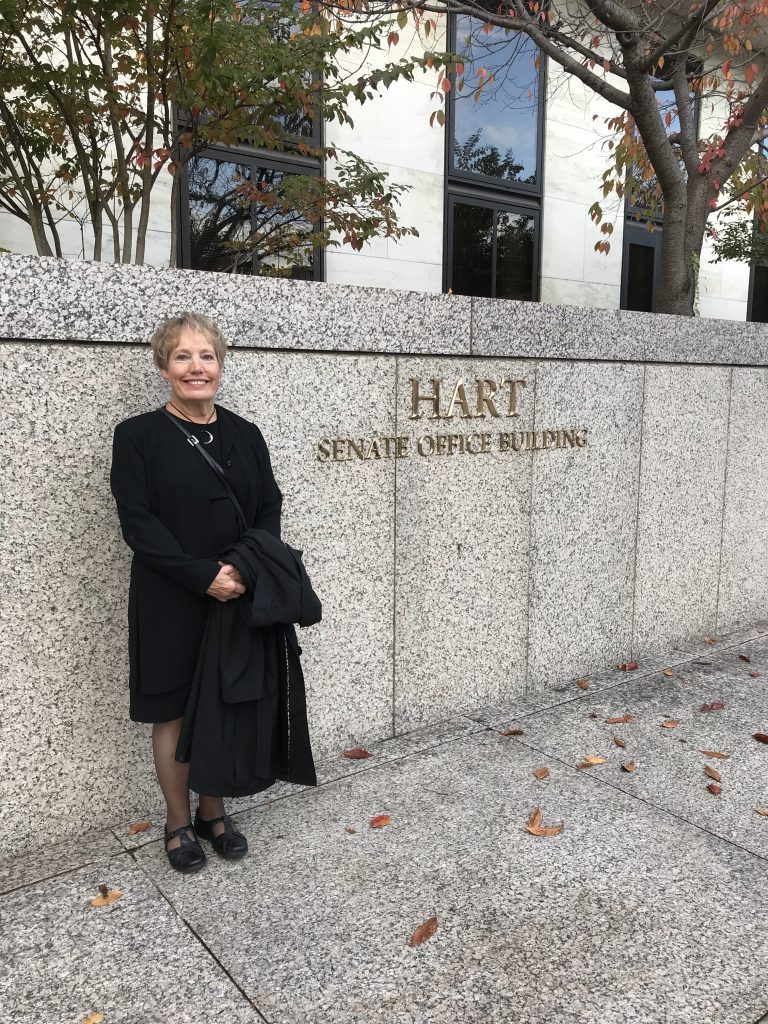December 14
Washington, D.C. — At a time of stark division all across America, we’d like to highlight a few moments of real-life consensus we witnessed at a Senate hearing Tuesday.
David Mitchell, a cancer patient and our president and founder, was among three panelists who testified and answered questions from members of a Senate committee on a new report on drug prices.
And, I think we can all agree, as Mitchell noted at the hearing, “We’re not dealing with flat screen televisions here. These are life-saving drugs.”

Consensus: The patent games drug companies play must end
Big Pharma plays games with patent laws to block competition that would lower prices for patients. You know it. We know it. And senators on the committee know it, too.
Sen. Rand Paul (R-Ky.) threw shade at a tactic called evergreening.
Evergreening entails a drug company making a tiny change to a product in order to extend patent protections and stall cheaper generic options from hitting the market.
“We should create a system where when a patent ends, it goes to generic, and if you want to tweak your drug, you get a new patent, but the old one goes to generic,” he suggested.
Sen. Susan Collins (R-Maine) discussed the “patent thicket” tactic, an intellectual property maneuver that entails a company filing a tangle of patents around a product to slow competitors from making a copy. The best-selling drug in the world drug, Humira, used for rheumatoid arthritis and other diseases, has more than 100 patents filed around it, she said.
“I agree that monopolies are being used to protect profit, not patients,” she said.
David Mitchell agreed, sharing a story about Ann Neilson, a retired nurse from Madras, OR, who has been forced to pay $1,400 a year for the chronic dry eye drug Restasis, for which there is no generic option. To make sure it stays that way, the drugmaker Allergan sold its patent to a Native American tribe to use its sovereign immunity to stall cheaper generic options from coming to market.

Consensus: Patients are subsidizing drug company ad campaigns, and it’s got to stop
Several senators complained about the irritating ads for prescription drugs they see on TV.
P4AD supports ending tax breaks for drug companies that spend millions on advertising, one of the recommendations made in the National Academies of Sciences, Engineering and Medicine report called “Making Medicines Affordable, A National Imperative.”
Only one other country in the world – New Zealand – permits direct-to-consumer advertising for drugs. As the law stands now, drug company marketing and ad budgets are tax deductible.
That’s one bitter pill to swallow.
Consensus: Let the sun shine
“In the absence of transparency, bad things happen,” Mitchell said, noting how little of it there is all along the drug supply chain, from the funny math (or is it a dart board) used to set drug prices to the secretive deals sorted out by entities called pharmacy benefit managers, the intermediaries between drug manufacturers and insurers and other players in the healthcare industry.
Sen. Paul agreed. He’d like to see more light shone on rebates
What is a rebate within the drug industry?
In his piece for Forbes, reporter Matthew Herper explained that while consumers can’t negotiate with drug companies – it’s your money or your life – drug companies constantly negotiate, in total darkness.
It’s like this: Instead of dropping prices, the companies give big payers like Medicare, insurance companies, and pharmacy benefit managers like Express Scripts rebates after drugs are sold, Herper reported.
And that all takes place behind closed doors. Who makes a killing? Who knows! If our thousands of patient stories tell us anything, the system isn’t kicking dollars made on those deals toward everyday Americans who rely on these drugs.
“It is a terrible system, but the only way to make it work is if we can mandate transparency on rebates,” Paul said.